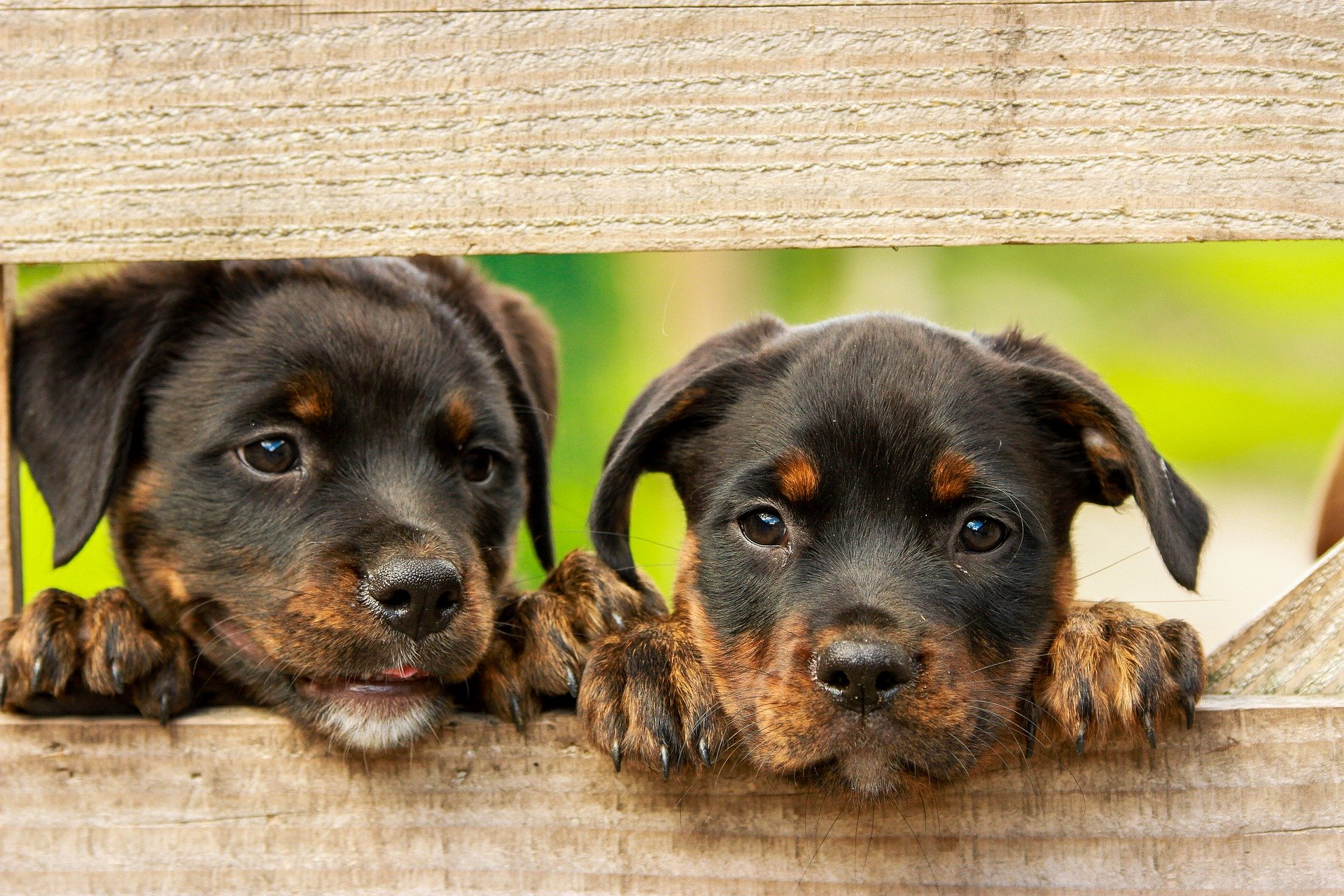Choosing a Canine Friend
You decided to add a canine companion to your household - congratulations! What should you look for to choose the best match for your home?
Adult or Puppy?
The first question most people think about is whether to get a puppy or an adult dog. It’s easy to be
drawn to an adorable puppy face and playful personality but an adult may be a better fit for your family.
Here are a few things to consider when making the decision:
|
Energy Level
Puppies are high energy, day and night. Adults can be energetic and playful too but rarely are as go-go-go as puppies.
Personality
A dog’s personality develops over many years. If you are hoping for a specific type of dog (one that will cuddle or sit quietly for long periods, for example), you are better off choosing an adult who already matches your expectations. A puppy may grow up to be a very different dog than you imagine.
Socialization Needs
In order to grow into safe, well-behaved adults, puppies need careful socialization. Dogs are expected to be confident and polite in many situations involving other people, animals, and environments. This requires work when they are young or they may develop serious behavior issues later in life.
Learned Skills Puppies need to learn their house manners. They are more likely to get into things in your home and require more dog-proofing. Adopted adults generally have lived in homes and already know the routine. They typically learn any new rules more quickly than puppies.
Teenage Years Around 6 months, your lovely puppy is replaced by a teenager. Suddenly they
have forgotten anything they’ve learned, are scared of random things, and seem to spend all day
thinking of new trouble to get into. While normal, this phase can last until a dog is 2 or 3 and
requires consistent training and management.
|
|
Two Puppies?? Maybe Not
|
If you’ve decided you still want to bring home a new puppy, it is highly recommended that you focus on one at a time. While it’s true that two puppies can keep each other company and wear each other out, they also require extra care to raise into behaviorally-healthy adults. This includes:
- Socializing and training them separately so they can handle being apart when necessary.
- Training politeness between them and managing any “sibling rivalry” that may come up.
- Taking the time to care for and give attention to two puppies takes a lot more time than just one.
Breed Considerations
Every dog is an individual but some breeds have traits that are more predictable that must be considered. These include exercise needs, common health conditions and related medical expenses, and training
needs. Some breeds have both high physical exercise needs and also require a lot of attention and training. Others may need more of one or the other. It’s especially worth knowing that a dog may not need much physical exercise but could still need training and time to learn to relax at home.
|
|
If You Already Have Pets
A very important factor when adding a new dog to your home is considering the needs of any other pets.
More than sex or age, energy level is going to predict how smoothly the introduction goes. If you have an
quiet dog or nervous cat, adding a puppy may just annoy and frighten them. Vice versa, if you have a
high-energy dog, a shy or older dog may have a hard time fitting in.
Remember that your current animals came first and should be your priority. It isn’t fair to displace one pet
for another.
Why do you want a Dog?
When deciding on a new dog, it is also important to think about why you want a dog and what
expectations you have from them. Some common reasons to get a dog are:
- As companionship and to provide affection
- Something to play with and have fun with
- A playmate for an existing pet
- To teach kids responsibility or be fun for kids
- To use as a therapy dog, working dog, or to compete in dog sports
These are all valid reasons and choosing the right dog is important to help everyone live together happily.
Find a dog that has the personality to match your reasons for getting a dog. For example, an independent, high-energy adolescent may not enjoy cuddling and a puppy may be too much work for your current lifestyle. If you need a dog that can do specific tasks (like act as a therapy or service dog), work with a qualified trainer or organization to find an appropriate match.
Finally, no matter the dog or puppy you choose, they will be a major addition to your life.
- Dogs are long term commitments that can live 15+ years.
- To grow up to be enjoyable companions, Puppies need socialization and training.
- While kids can help, a human adult must be ultimately responsible for the dog.
With a little effort, you can find the right dog for your family and have many happy years together!
This material was written in collaboration with dog behavior consultant Jessica Char.
Learn more at www.CanineEngineering.com

|





